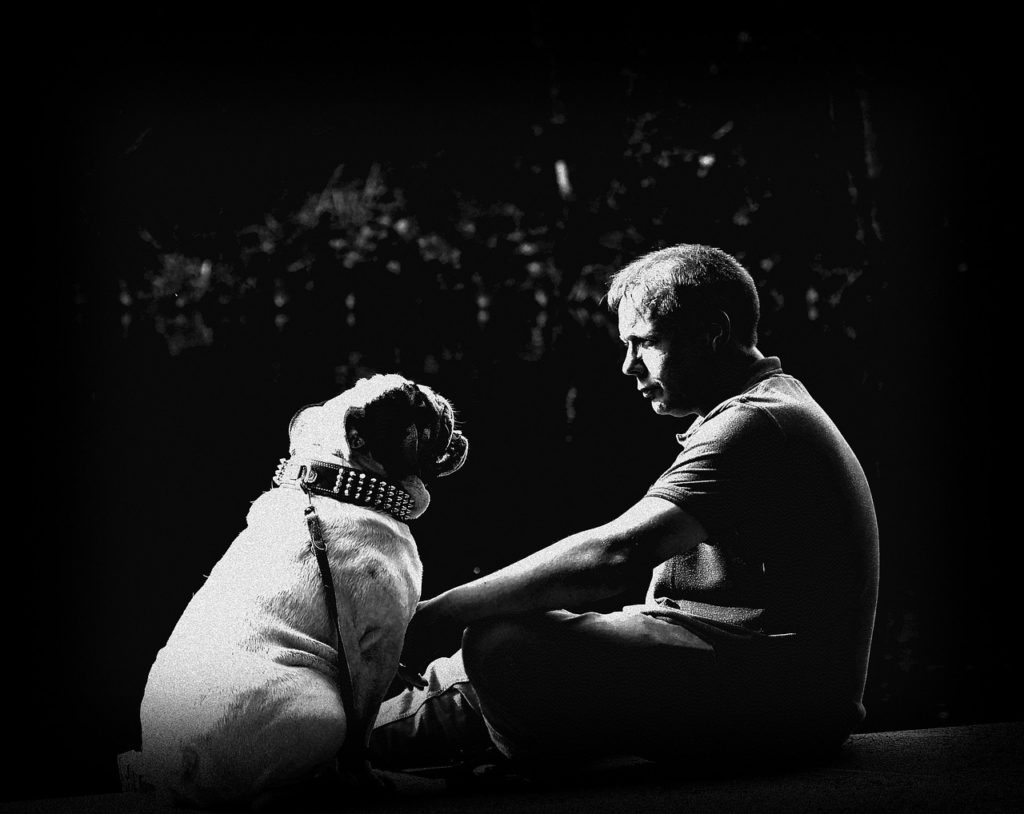It’s a strange time. We’re all adjusting to a “new normal” in this world of quarantine, social distancing, and face masks, and we’re all facing uncertainty. Animal Friends Alliance understands that you have questions about how COVID-19 may affect your pets and your family. We strive to provide education and peace of mind to help you navigate new challenges. We’ve compiled some of the questions we receive the most, and if you have a question about COVID-19 and your pet that you would like for us to answer, please comment here or email info@savinganimalstoday.org.

Can I get COVID-19 from my pet? Can my pet get it from me?
According to the Centers for Disease Control (CDC), there is no evidence that pets like cats and dogs can give COVID-19 to humans. There is some evidence from other countries that cats and dogs may be able to contract COVID-19 from people, but there is very little evidence about transmission to pets and more research is being done. For now, practice good hygiene around your pets, including washing your hands, and if you have COVID-19 or have symptoms, isolate yourself from your pets like you would from a human family member: keep your distance and have another family member care for them if possible. If you are sick and must care for a pet, wear a mask when caring for them and wash your hands before and after interacting with them.
What will happen to my pet if I can’t afford their care due to COVID-19?
If you are unable to afford food due to financial hardship of any kind, Animal Friends Alliance can help with our Kibble Supply Pet Food Pantry. We offer free distribution of cat and dog food on pre-scheduled dates an average of twice per month. There is no requirement of proof of income for the first three months, but if you can complete an application in advance, it will help us prepare to meet your needs. You can find the next date on our online calendar. If you are facing other financial challenges related to your pet, you can contact us at petresources@savinganimalstoday.org.
What will happen to my pet if I get COVID-19 and can’t care for them?
It’s always a great idea to have an emergency preparedness plan for your pet. One of the most important steps in this plan should be to identify a trusted friend, neighbor, or family member who is willing to care for your pet if you’re unable to provide care yourself. You should provide this temporary caretaker with a key and written permission to enter your home before you need help. You should prepare a “go-bag” for your pet including a 2 week supply of food, medication, other necessities (such as a harness/leash or litter) and current medical records, as well as detailed instructions. You should ensure your pet’s go-bag is in a conspicuous place and your temporary caretaker knows where to find it.
Animal Friends Alliance is unable to provide temporary care for COVID-19 exposed animals due to our limited space and resources and the CDC and American Veterinary Medical Association (AVMA) recommendation that exposed animals remain isolated from other animals for at least 14 days. However, if you’re concerned that you’re unable to create an emergency preparedness plan for your pet at this time, you can contact us at info@savinganimalstoday.org and we will do our best to help you come up with a plan.
Is it safe to care for an animal whose owner has COVID-19?
The CDC and AVMA agree that it is unlikely for COVID-19 to be transmitted through fur, so caring for the pet of an affected friend or neighbor is a lower-risk activity. However, if you are caring for a pet in their own home, it’s best to minimize entry into the home as much as possible and wear PPE (mask, gloves, and clothing/shoes that can be easily changed or removed) whenever entering the home. If you are caring for another person’s pet in your own home, it’s best to keep the pet in an easily cleaned area of the home separate from your own pets and to practice careful hygiene, like hand-washing, changing clothes, and sanitizing anything that came into your home with the animal (e.g. carrier, bedding). For more detailed guidance on caring for an affected pet, visit this article from the Maddie’s Shelter Medicine Program at Cornell.
What will happen to my pet if I die?
Our very real fears about COVID-19 have prompted many people to consider pet survivorship options for the first time. Animal Friends Alliance believes that it’s always the best practice to have a plan for your pet should something happen to you. The best option is always to talk with a family member or friend about caring for your pet and ensuring that your wishes are written down in a will or other legal document. If you feel that’s not an option for you, Animal Friends Alliance has a Pet Survivorship program that’s affiliated with our planned giving society. If you have questions about this program, you can contact us at plannedgiving@savinganimalstoday.org.
Animal Friends Alliance is committed to every animal that is adopted from us (or our predecessor organizations) and we will always welcome back our alumni animals. However, we lack the space and resources of an open-admission shelter and, due to these limitations, we are never able to help every animal that we want to help. During this crisis, as every day, we stand beside our partner shelters and will do everything that we can to assist animals in need.
We understand that we are living through a strange and frightening time and Animal Friends Alliance wants to give you the support and guidance that you need. We are continuing to assess other ways that we can help pets and people during these times. If you have questions that we have not answered here, please contact us at info@savinganimalstoday.org.
